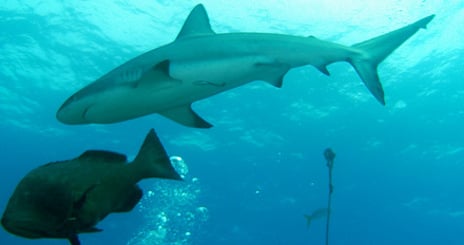"The problem is not so much that Spain is the number one exporter of shark fins to the Chinese city," Alex Bartoli of Shark Alliance told The Local.
"The issue is that Europe needs to tighten up its rules regarding both shark fishing and finning."
Finning is the practice of capturing sharks, cutting off their fins and then releasing them into the ocean where they die from suffocation or fall victim to predators. Alternatively, the animals are brought back to shore and the fins are removed there.
The fins are used to make the Chinese delicacy shark fin soup.
Hong Kong is the destination for half of the world's shark fin market, El Mundo reported on Friday.
Bartoli told The Local that Europe´s anti-finning law of 2003 needed further strengthening as on-board finning still occurred.
In November 2012, European Commission deputies overwhelmingly voted in favour of a proposed new law which it said means "EU vessels fishing anywhere in the world will have to land sharks with the fins still attached".
The introduction of the new law will effectively put a stop to finning.
Bartoli said the new rules were yet to be approved by the continent's fisheries ministers but he hoped this would be done "as soon as possible".
The Shark Alliance spokesman also said that the European Union needed to draw up tougher rules on the fishing of the blue shark and the porbeagle, the two most widely fished species in Spain.
He said there were currently no limitations on capture of these animals in terms of both total hauls and the size of the individual animals fished.



 Please whitelist us to continue reading.
Please whitelist us to continue reading.
Member comments